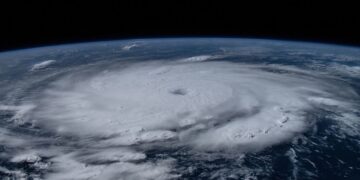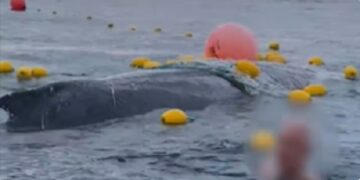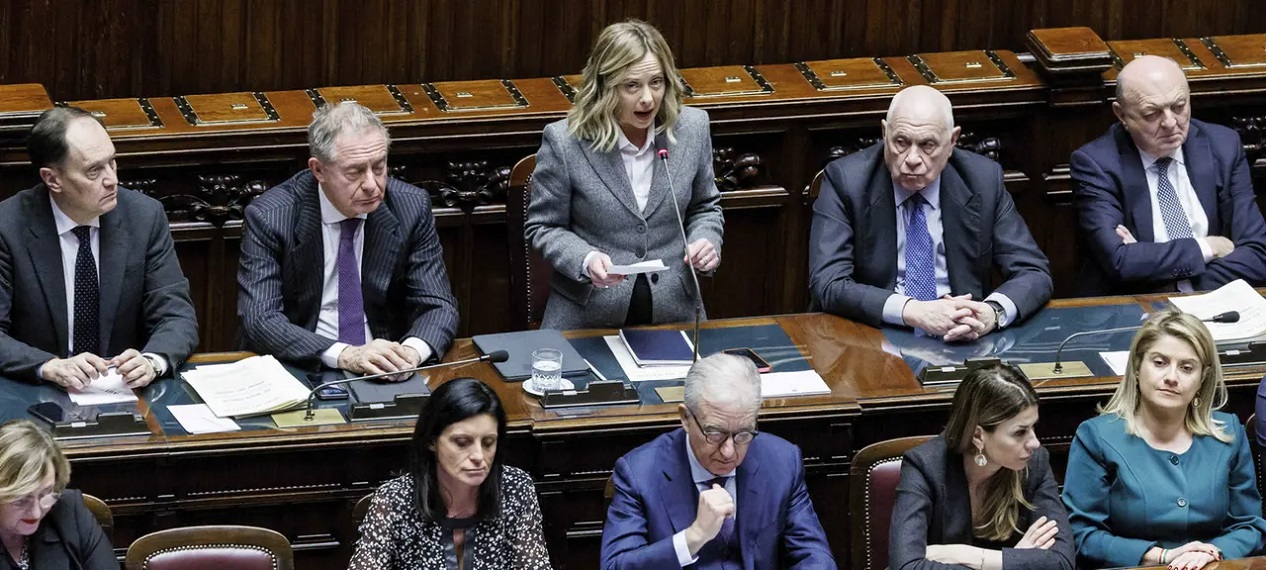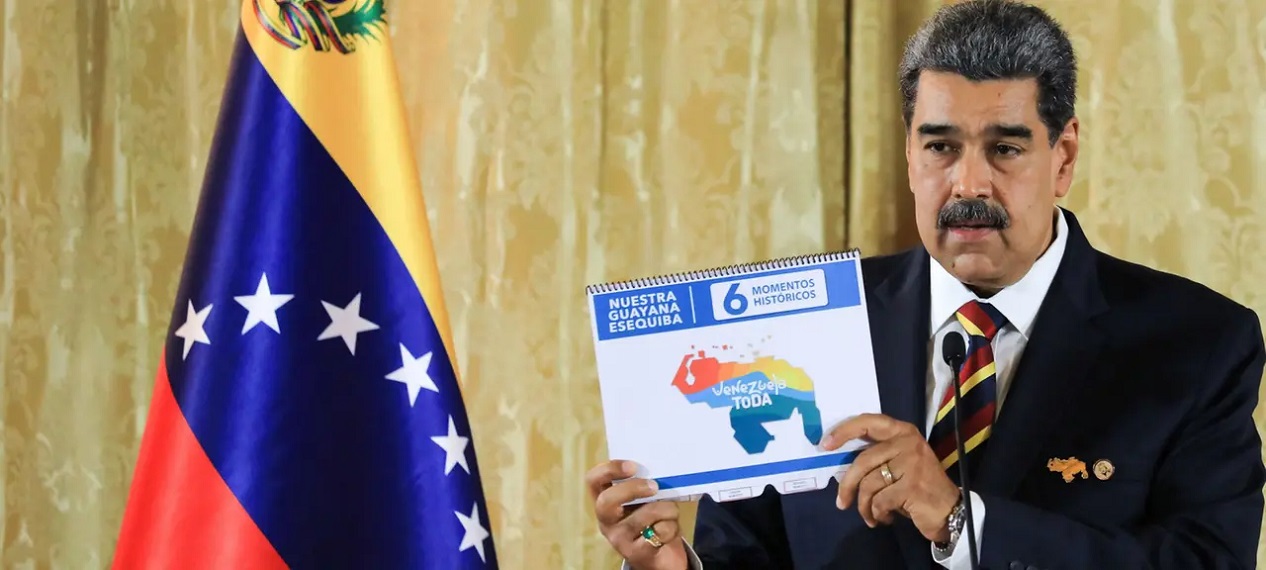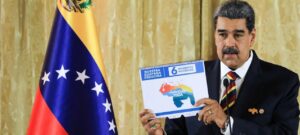 The Region of Essequibo currently belongs to Guyana. However, since oil reserves were discovered there, Venezuela has laid claim to it. Now, dictator Maduro has passed a law that aims to make the area a Venezuelan federal state.
The Region of Essequibo currently belongs to Guyana. However, since oil reserves were discovered there, Venezuela has laid claim to it. Now, dictator Maduro has passed a law that aims to make the area a Venezuelan federal state.
Region Essequibo Set to Belong to Venezuela
The Region of Essequibo currently belongs to Guyana. However, since oil reserves were discovered there, Venezuela has laid claim to it. Now, dictator Maduro has passed a law that aims to make the area a Venezuelan federal state.
Maduro Pushes for Essequibo Region to Join Venezuela
Venezuelan President Nicolás Maduro has enacted a law to transform the oil-rich Essequibo Region of neighboring Guyana into a new Venezuelan federal state. “The decision made by the Venezuelan people in the referendum will be fulfilled in all aspects. With this law, we will defend Venezuela on the international stage,” Maduro stated in Caracas.
Controversial Referendum Decision
At the beginning of December, Maduro conducted a controversial referendum in Venezuela, where reportedly 96% of the participants voted for the annexation of “Guayana Esequiba” as a Venezuelan federal state. With this law, the 24th federal state will now be established within Venezuela’s territorial policy, as announced from the presidential palace.
The population of this area would also be represented in Venezuela’s upcoming parliament, to be elected in 2025, with one representative. Additionally, the law outlines “the provision and establishment of a High State and Country Commission for the Defense of Guayana Esequiba,” raising concerns once again that Venezuela might invade the region and trigger a war.
Unchanged Borders for 125 Years
The dispute over the territory claimed by Venezuela in western Guyana appeared to have calmed down recently, especially after both presidents shook hands and exchanged gifts at a summit of Latin American and Caribbean countries a month ago. “Peace and love,” Maduro conveyed to his counterpart Irfaan Ali.
Venezuela has long maintained its claim over the resource-rich area, which encompasses about two-thirds of its neighboring country. The current borders were established in 1899 through an arbitration ruling in Paris, initiated by the US and UK. Venezuela refers to an agreement with the United Kingdom from 1966 – just months before the then British Guiana colony gained independence – which sought a negotiated solution to the dispute.
Oil Discoveries Spark Interest
Guyana has brought the case to the International Court of Justice (ICJ), but Venezuela rejects its jurisdiction – a stance also reflected in the newly passed law. Massive oil reserves were found off Guyana’s coast in 2015, leading to a significant economic boost for the English-speaking country, formerly one of the poorest in South America.


